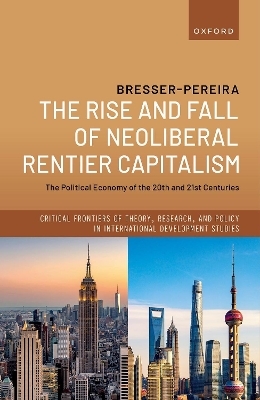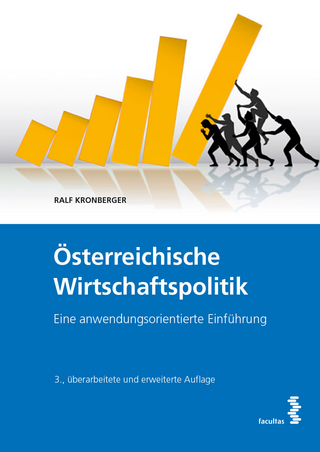
The Rise and Fall of Neoliberal Rentier Capitalism
Oxford University Press (Verlag)
978-0-19-889814-6 (ISBN)
- Noch nicht erschienen (ca. März 2025)
- Versandkostenfrei innerhalb Deutschlands
- Auch auf Rechnung
- Verfügbarkeit in der Filiale vor Ort prüfen
- Artikel merken
The book discusses capitalism after two revolutions - the Organisational Revolution and the Democratic Revolution. It views capitalism since the New Deal in the US and the post-war as a progressive and developmental era and the Neoliberal Turn as the change from social democracy to radical and regressive global neoliberalism, which was a regressive time for almost forty years. In the Neoliberal Years, rentiers replaced entrepreneurs in the command of the economy and called on the financiers to manage their wealth and serve as organic intellectuals, and both mounted an attack to the state, which is the main capitalist institution.
The global crisis and, in 2020, the Covid pandemic showed that the state remains the nations' resource of last instance. The transition of China from statism to an active developmentalism resulted in an extraordinary growth. Given such realities, in 2021 we saw the collapse of neoliberalism, and in the United States, a Developmental Turn - the state is back in the economy.
The transition phase we live in is characterised by three main forces - economic liberalism, managerialism, and democracy. Economic liberalism is the great defeated, managerialism became powerful and is developmental, and democracy is the stronger force. It was attacked by neoliberalism and is now being attacked by right-wing populism, but resisted and resists brilliantly, proving that it was a conquest of the popular classes that became a universal value counting on the support of all social classes.
Luiz Carlos Bresser-Pereira is Emeritus Professor of Getúlio Vargas Foundation, editor of the Brazilian Journal of Political Economy and founding member of the Arns Commission for the Defence of Human Rights. He was finance minister (1987) and minister of federal administration of Brazil (1995-98). He holds an MBA from Michigan State University, a law degree, and a PhD in economics from the University of São Paulo.
Part I: Forms, Phases, Models
1: Human progress and the republican state
2: The Capitalist Revolution
3: Two forms and four phases
4: The developmental state
5: Imperialism and the developing world
Part II: Two Founding Revolutions
6: The Democratic Revolution
7: Organizational Revolution
8: The managerial ideology
9: The Golden Age and the 1970s crisis
10: The end of statism in Russia and China
Part III: The neoliberal regression
11: The Neoliberal Turn
12: Globalization: reality and design
13: Rentiers and financiers
14: Neoliberal ideology: reactionary and neoconservative (Google)
15: Neoclassical Economics and its critiques
16: Financialisation
Part IV: The crisis
17: The 2008 Great Financial Crisis
18: Collapse of neoliberalism and secular stagnation
19: Falling inequality?
20: The developing world
21: China, the US, and developmentalism
Part V: What lies ahead for capitalism?
22: Democracy is alive
23: Neoliberalism collapsed
24: Democratic Managerial Capitalism
25: No emancipatory transition
| Erscheint lt. Verlag | 6.3.2025 |
|---|---|
| Reihe/Serie | Critical Frontiers of Theory, Research, and Policy in International Development Studies |
| Verlagsort | Oxford |
| Sprache | englisch |
| Maße | 153 x 234 mm |
| Themenwelt | Sozialwissenschaften ► Soziologie |
| Wirtschaft ► Volkswirtschaftslehre ► Wirtschaftspolitik | |
| ISBN-10 | 0-19-889814-2 / 0198898142 |
| ISBN-13 | 978-0-19-889814-6 / 9780198898146 |
| Zustand | Neuware |
| Informationen gemäß Produktsicherheitsverordnung (GPSR) | |
| Haben Sie eine Frage zum Produkt? |
aus dem Bereich


